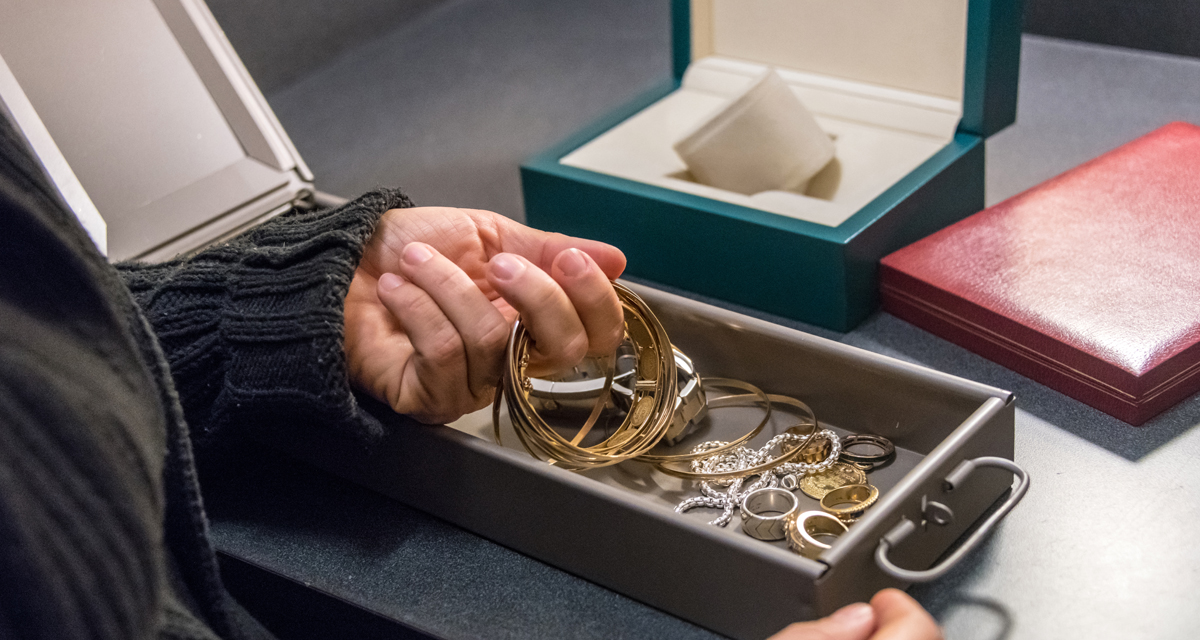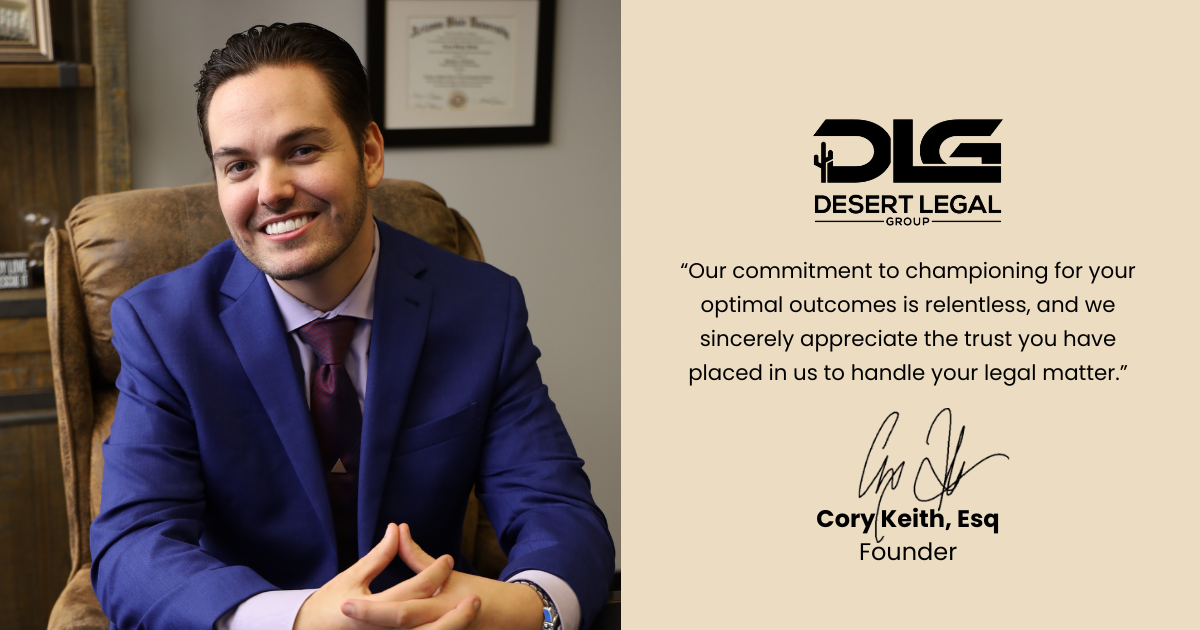Arizona’s family courts require both spouses to fully disclose all assets and property during the divorce process. Full financial transparency is crucial for ensuring that community property is fairly divided between both spouses. This is one of the most important steps of any divorce in Arizona.
Unfortunately, some individuals try to hide assets during the disclosure stage in an effort to avoid division and loss of property. Those actions can interfere with the process of fairly dividing the estate and can result in ramifications for the untruthful spouse. Worse, they can cause you to lose out on important assets. If you are wondering what to do if your spouse is hiding assets during your divorce, learn about some common locations to look for hidden assets and how a skilled divorce attorney can help.
Community vs Separate Property in Arizona
When dividing assets and property in a fair and equitable manner, Arizona courts will consider whether assets are community property or personal property. Community property can be anything you own, including real property (land, homes, buildings), financial assets, furniture, vehicles, and more. Community property is considered any property acquired during the marriage, and the state considers community property as belonging equally to both spouses. This type of property is divided equally between the spouses during a divorce.
Personal or separate property refers to anything that one spouse owns outright. This could be something that was given as a gift or something that was inherited. Personal property also applies to property purchased before the marriage. However, it is important to know that personal property is transferable. For example, consider a spouse who purchases a car before the marriage, which is considered personal property. If the spouse sells that car and uses the money to buy a boat, the boat is also considered personal property if only that money was used to purchase the boat.
Signs Your Spouse Is Hiding Assets
Divorces are often highly emotional, and people do not always act rationally during the divorce process. This can be especially true as spouses begin to worry that they will lose valuable or important assets during property division. While this is a common worry, some individuals take their efforts to preserve their assets too far. If you have suspicions that your spouse is hiding assets, it is essential to consult with a family law attorney with experience identifying places to look for hidden assets in divorce.
Remember, you have a right to half of the community property acquired during your marriage. As such, asset disclosure is a critical means of ensuring a fair and equitable divorce. It is important to be aware of the signs that your spouse may not be fully transparent during the financial disclosure process.
Control of Finances
One of the most common red flags that your spouse may be hiding assets is when they have complete control over finances. If your spouse handles all bills and investments, you may be in the dark regarding the location of common locations to look for hidden assets. You are not obligated to simply trust and hope that your spouse is honest when disclosing assets. Your family law attorney can take steps to ensure that your spouse is open and transparent about financial disclosures.
Avoids Discussing Finances
If your spouse avoided discussing finances during your marriage or leading up to the divorce process, that may be a sign that they may be hiding assets from you. People who have hidden accounts and assets are more likely to be secretive about finances. Often, partners try to stay mostly silent about finances to avoid accidentally disclosing assets their partner doesn’t know about.
Something Doesn’t Add Up
There are many ways that things may feel off about how your spouse handles finances. If you know your spouse’s general income and see that their expenditures are much higher than what they should be, that could be a sign that they are hiding something. Or, a sudden reduction in resources could signal that money was diverted somewhere. The appearance of new loans or unusually large purchases could also be signs something is amiss.
Extra or Unexplained Bank Accounts
If you receive notices about new bank accounts opened in your family’s name, that could be a sign that your spouse is preparing to move money around for the purpose of hiding assets from disclosure. Any mail from new financial institutions should be considered potential evidence that your spouse is making financial decisions without your knowledge or consent.
New Passwords
New or changed passwords are another sign that your spouse is hiding assets. If your bank statements no longer arrive at your home, that could be a sign that your spouse has changed the mailing address or switched to electronic statements for the purpose of concealing those bank statements from you. This is often done in conjunction with changing bank passwords.
Tips for Finding Hidden Assets
The attorneys at Desert Legal Group frequently help clients find common locations to look for hidden assets. Every situation is unique, but our attorneys can guide you through the process of finding hidden assets. In some cases, our law firm may handle these investigations directly.
Here are some tips to get started:
Collect Documents
Gather pertinent financial documents, including bank statements, tax returns, property deeds, investment statements, business records, and credit card statements, among others. Review the documents to find inconsistencies, discrepancies, or missing information. If you find anything that warrants further investigation, notify your attorney.
Consult with Financial Professionals
You may need to seek the aid of financial professionals, such as forensic accountants or certified divorce financial analysts. Certain inconsistencies may not be obvious to someone who is not familiar with finance. These professionals possess specialized skills in evaluating records, tracking assets, and detecting irregularities that could conceal wealth. Consulting with these specialists can be instrumental in ensuring an accurate investigation of financial matters.
Examine Disparities
It is essential to examine any potential disparities in your spouse’s spending: Disparities between income and lifestyle could indicate unreported assets. Look for signs that could include excessive spending or undisclosed accounts.
Examine Business Interests
Conduct an audit of your family’s finances to identify any irregularities. These could be unreported income or payments. Irregularities could indicate attempts by your spouse to conceal assets within the business.
Examine Electronic Footsteps
In the modern digital age, electronic evidence is invaluable for uncovering hidden assets. Be vigilant for clues within emails, text messages, and social media interactions. These might reveal undisclosed assets or transactions not documented in paper records.
Depositions and Discovery Requests
Depositions and formal discovery requests are both effective tools for gathering evidence against your spouse in divorce court proceedings. Testimonies under oath and the production of relevant documents can compel the spouse to disclose financial details. Your attorney can help you ensure you follow all legal requirements for gathering evidence.
Use Your Legal Resources
The job of your family law attorney is to guide you through the legal process, suggest strategies, and provide remedies to compel full financial disclosures from your spouse. Consulting with an attorney should be both the first and the last step you take before you begin financial disclosures.
How the Courts May Handle Hidden Assets
In Arizona, hiding assets during a divorce is seen as fraudulent behavior. Hiding assets can lead to serious consequences, including fines, orders to pay attorney’s fees, charges of contempt of court, and potential perjury charges. When a spouse purposely conceals or transfers assets during divorce proceedings, the judge may end up granting more assets to the other spouse. Perjury can potentially lead to imprisonment upon conviction.
Hiding assets during a divorce is deceiving both the involved partner and the court. The court has the authority to demand asset disclosure. If you suspect your spouse is concealing assets and have evidence, inform your attorney. Your lawyer may be able to gather evidence for presentation to the court.
If you are the spouse who has been accused of hiding assets, it’s important to know that proving that an asset is your personal property will require evidence that it is yours alone. In addition, any debt accrued or assets that are purchased after separation are generally considered personal property and are not divided. Separation can begin the moment you tell your spouse that you want a divorce or the moment you or your spouse are served with divorce papers, so any assets or debts you acquire after that point will likely not be up for division.
Why Investigate Hidden Assets?
Property division in a divorce is a key time when it pays to trust your instincts. If you notice any change in your spouse’s behavior leading up to the divorce or during the separation, take that as a potential warning sign. Divorce proceedings can make people behave in ways you may not expect, and the desire to save money or keep property from a spouse can sometimes override common sense and decency. You may be surprised to learn how often people engage in this type of deceit during a divorce.
By taking time to investigate attempts to hide or transfer assets, you can benefit by having your fair share of the community property awarded to you. In many cases, that could mean thousands or tens of thousands of dollars. In addition, if your spouse is hiding assets, the courts may look more favorably on you, and your spouse’s position will be viewed with greater scrutiny by the court.
Assets and Hidden Assets FAQs:
Understanding how assets are dealt with generally during a divorce is useful in all cases. It is especially important to understand the asset discovery process and financial breakdowns if you have concerns about hidden assets. A skilled lawyer can help you not only understand answers to common questions but also answer questions specific to your unique case.
Schedule Your Hidden Asset Consultation Today
Discovering hidden assets during divorce proceedings is crucial for financial transparency. You can find hidden assets through document analysis, consultation with financial professionals, analysis of lifestyle disparities, tracing business interests, following electronic trails, and utilizing legal resources.
At Desert Legal Group, we are passionate about helping families navigate the state’s family law system and providing solutions tailored to each family’s unique situation. We strive to offer comprehensive and compassionate legal representation to each of our clients. Contact our firm today to learn more about our client-centric approach and learn how we can support you.

Attorney Cory Keith is an exceptional legal professional dedicated to providing effective representation for his clients. Driven by the belief in treating others how he would want himself represented, Mr. Keith has earned a name for himself for his unflagging advocacy and compassionate approach to law.
Mr. Keith attended Arizona State University, earning his Bachelor’s in Criminal Justice and Criminology through a full academic scholarship. With outstanding performance, he received another full ride academic scholarship to attend law school, where he demonstrated exceptional leadership abilities by accepting executive roles in various organizations as well as serving as legal clerk at multiple well-respected law firms.





